2012 was a great year for films. Sure, there were plenty of bad ones. There always are. But the good so outweighed the bad that I decided the struggle to pare the list down to 10 wasn’t worth it. Choosing just 12 was a struggle, but it gave me more room, especially when guided by scores. A film needed an 8/10 or higher on the site to even be included in the discussion.
here’s what happened in film this year. A ton of low budget sci-fi, fantasy, and horror films got relatively wide releases and did well enough to warrant long stays in theaters. Big budget tent-poles were made with a lot of sensitivity and nuance. The streaming market allowed for faster turn arounds for under-performing films and word of mouth allowed smaller titles with name actors to expand to big healthy theatrical releases.
Prestige films came and went in the third and fourth quarter but the critics groups rallied around a wide range of titles released throughout the year. I can only hope that means the end of the “dump them in December and hope” strategy for Oscar glory.
So many great films did one weekend releases and went straight to VOD. Documentary films didn’t travel as much as usual because of the new, less restrictive rules for qualifying for the Oscars. Foreign language films were a bust unless you were in a major film market.
As such, I’m opting not to include documentaries on my Top 12 list. I haven’t seen enough to fairly compare the genre to the narrative films of the year. Same with a lot of the one week qualifying releases of foreign language films. The Devil’s Carnival misses out solely due to running time. It got enough of a theatrical release for me to include it in other categories, but it is under an hour long, which makes it a short, albeit a very accomplished one.
So here’s my list of the Top 12 Films of 2012. If I’m going to reflect on a great year for film, I’m really going to reflect on it.
12: The Hunger Games
The Hunger Games could have been just another hit book to film cash grab with no style or substance. Thankfully, it wasn’t. Writer/director Gary Ross, working with original novelist Suzanne Collins and screenwriter Billy Ray, found a great conceit to take an internalized narrative of angst, fear, and survival and turn it into something wildly cinematic. Much of Katniss’ internal monologue is replaced with color commentary from the Capital’s telecast of the Hunger Games and, even better, scenes inside the Gamemaker’s control room. It’s still Katniss’ story, but it provides a clever way to handle a deeply psychological novel onscreen without voice over.
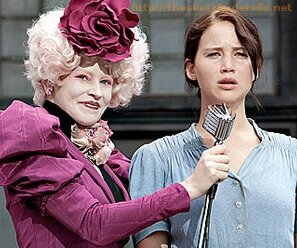 The film looks and sounds great. From the extravagance of the Capital to the desolation of the outlying Districts, The Hunger Games succeeds in setting the tone for the cruel entertainment of the haves at the expense of the have nots. The costumes and makeup are as wild as necessary, no matter how much the parody hurt the feelings of the Academy voters (per Academy chatter relayed by Oscar bloggers).
The film looks and sounds great. From the extravagance of the Capital to the desolation of the outlying Districts, The Hunger Games succeeds in setting the tone for the cruel entertainment of the haves at the expense of the have nots. The costumes and makeup are as wild as necessary, no matter how much the parody hurt the feelings of the Academy voters (per Academy chatter relayed by Oscar bloggers).
The ensemble cast deliver knock-out performances in roles that were re-weighted to open up the novel onscreen. Then there’s Jennifer Lawrence as Katniss, who is the main reason the entire film works. Once the action in the arena kicks off, she barely has any dialogue. Yet, you can’t take your eyes off of her because she is living this role. It’s one thing to tell the audience they should root for a character; it’s quite another for the character to speak for herself without dialogue.
Full Review
#11-10
#9-8
#7-6
#5-4
#3-2
#1
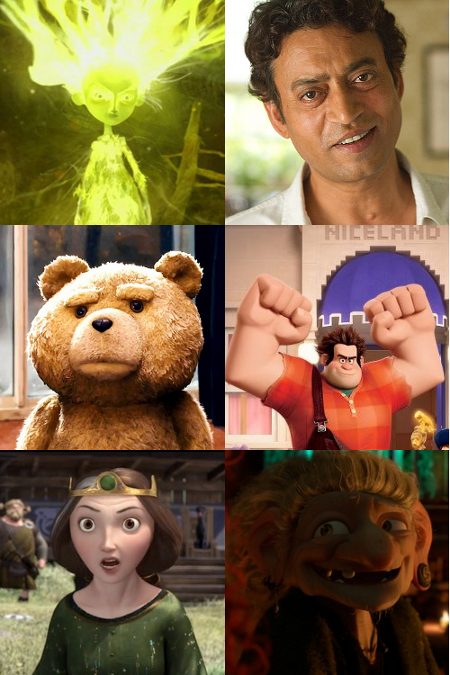

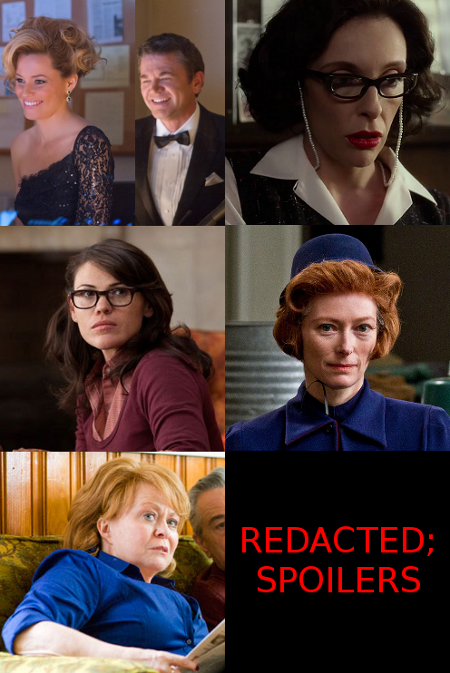
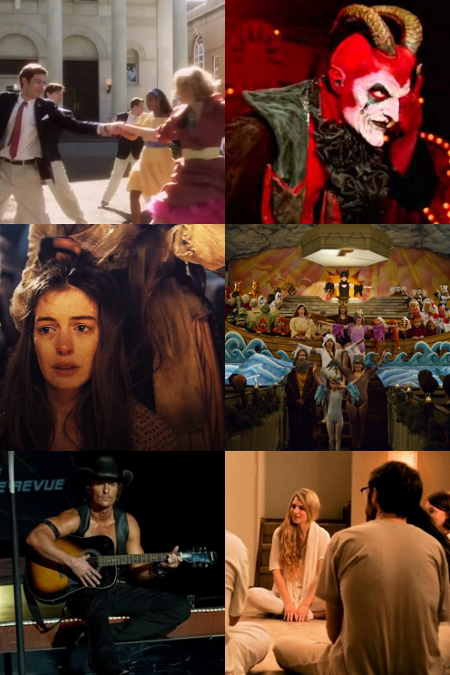
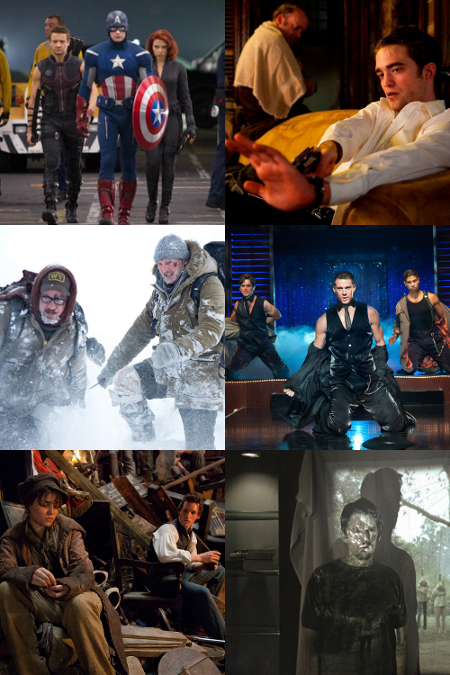
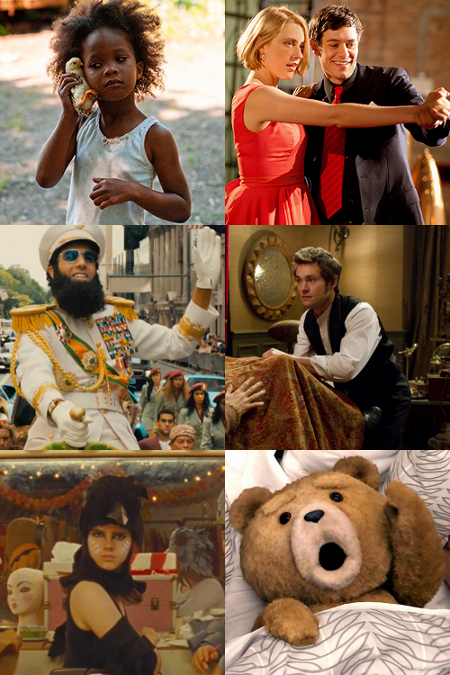

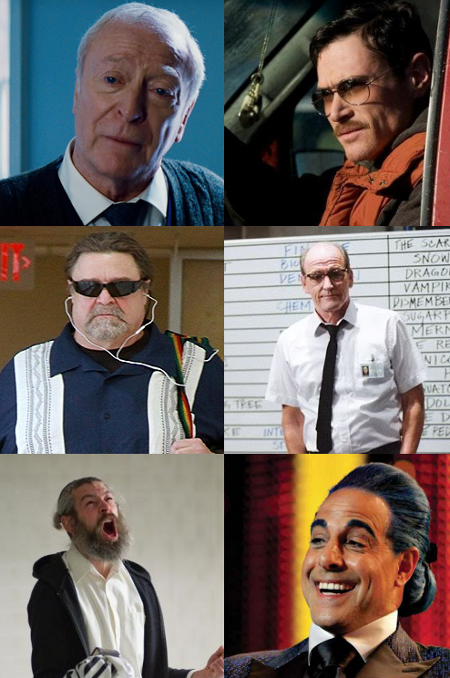
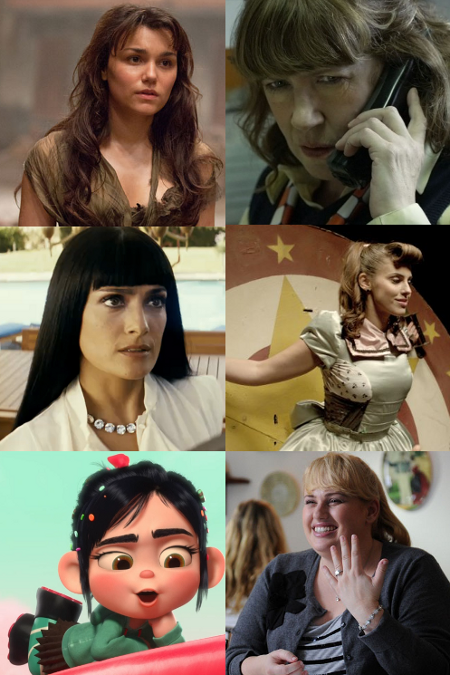
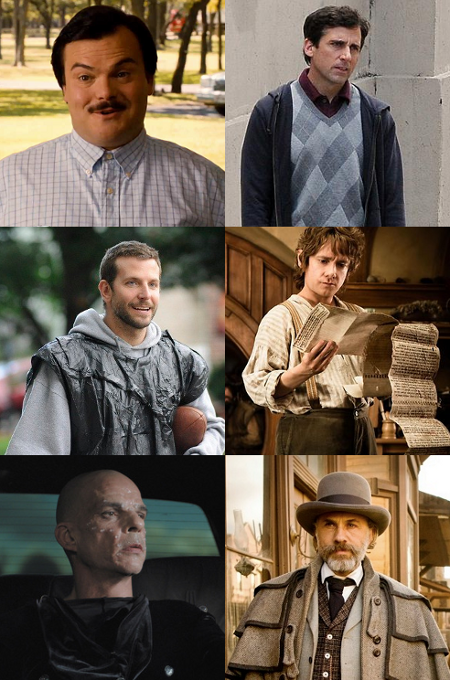
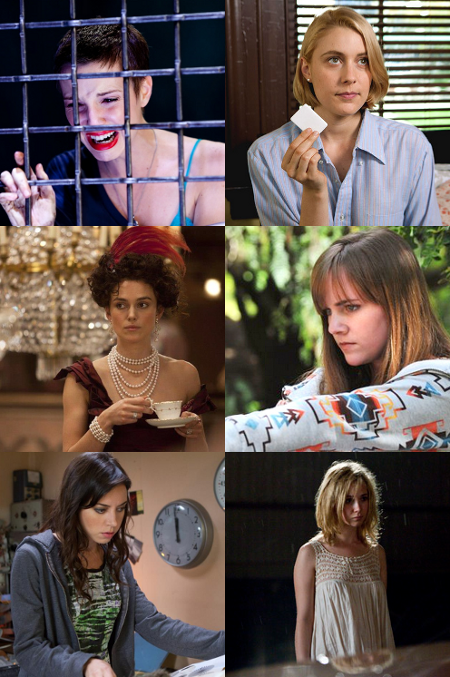
 The film looks and sounds great. From the extravagance of the Capital to the desolation of the outlying Districts, The Hunger Games succeeds in setting the tone for the cruel entertainment of the haves at the expense of the have nots. The costumes and makeup are as wild as necessary, no matter how much the parody hurt the feelings of the Academy voters (per Academy chatter relayed by Oscar bloggers).
The film looks and sounds great. From the extravagance of the Capital to the desolation of the outlying Districts, The Hunger Games succeeds in setting the tone for the cruel entertainment of the haves at the expense of the have nots. The costumes and makeup are as wild as necessary, no matter how much the parody hurt the feelings of the Academy voters (per Academy chatter relayed by Oscar bloggers).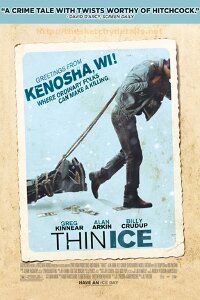 That’s an easy one. This was dumped to a February release on 53 screens with no marketing and only word of mouth to keep it open. The film actually stayed in theaters through May, but dropped screens every week.
That’s an easy one. This was dumped to a February release on 53 screens with no marketing and only word of mouth to keep it open. The film actually stayed in theaters through May, but dropped screens every week. The Raid: Redemption is the action/thriller you’ve been waiting for. It’s a high stakes espionage film about a top notch team of agents called in to take down a mob boss who controls a gigantic, towering apartment complex. The action is used to develop characters because the story itself is so simple. The new score for the US release does wonders to bridge the gap between Indonesian and American cinema and culture.
The Raid: Redemption is the action/thriller you’ve been waiting for. It’s a high stakes espionage film about a top notch team of agents called in to take down a mob boss who controls a gigantic, towering apartment complex. The action is used to develop characters because the story itself is so simple. The new score for the US release does wonders to bridge the gap between Indonesian and American cinema and culture. The Devil’s Carnival decided to steal a page from the golden age of Hollywood and screen as a series of events. Darren Lynn Bousman toured the show throughout North America with large, immersive screenings. Cast members and circus performers showed up to interact with the crowd before the hour long film played. The ticket price was high for a film–$22 just to get in, significantly more for the full experience–and the lower price sold out quickly in most markets.
The Devil’s Carnival decided to steal a page from the golden age of Hollywood and screen as a series of events. Darren Lynn Bousman toured the show throughout North America with large, immersive screenings. Cast members and circus performers showed up to interact with the crowd before the hour long film played. The ticket price was high for a film–$22 just to get in, significantly more for the full experience–and the lower price sold out quickly in most markets.